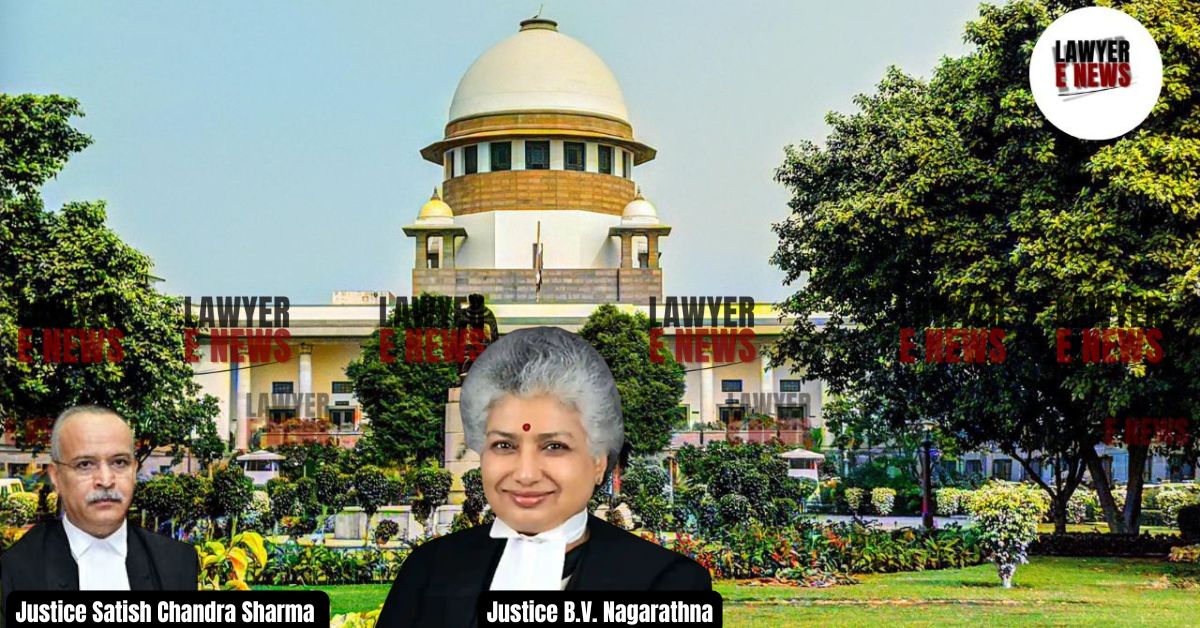-
by Admin
16 February 2026 1:47 PM



Police Excess During Investigation Still Requires Prior Sanction for Prosecution - In the recent judgment Supreme Court ruled that acts of police excess, if reasonably connected with the discharge of official duties, cannot be prosecuted without prior sanction from the competent authority as mandated under Section 197 of the Code of Criminal Procedure, 1973 and Section 170 of the Karnataka Police Act, 1963. The Court held that "even if an act is in excess of duty, as long as there is a reasonable nexus with the official duty, the statutory safeguard of sanction is attracted."
This decision sets aside the High Court’s order that had allowed the prosecution of the police officers without sanction, reaffirming the balance between protection for public servants and accountability for unlawful acts.
The complainant, Seetaram, alleged that the appellant-accused (police officers) subjected him to custodial violence, illegal detention, and defamation. He claimed that he was physically assaulted, stripped, and tortured by accused Nos. 1 to 5 at Mahalakshmi Layout Police Station, Bengaluru, in 1999. Further, it was alleged that his photographs were illegally taken and later published with defamatory slogans by accused No.6, linked to a publication.
Subsequently, in 2007, the complainant lodged a private complaint under several IPC provisions, including Sections 326, 358, 500, 501, 502, and 506(b) read with Section 34 IPC. Cognizance was taken, and summons were issued. Accused Nos. 1 to 5 challenged the proceedings, arguing that the prosecution was bad for want of prior sanction under Section 197 CrPC and Section 170 of the Karnataka Police Act.
Both the Sessions Court and the High Court dismissed their petitions, holding that the acts were not connected with the discharge of official duties and no prior sanction was necessary.
The primary legal question before the Supreme Court was:
Is prior sanction mandatory under Section 197 CrPC and Section 170 of the Police Act when the alleged acts of violence by police officers occur during the investigation of criminal cases, even if alleged to be excessive?
Answering this, the Court held, “The pivotal inquiry is whether the impugned act is reasonably connected to the discharge of official duty. If yes, prior sanction is mandatory, irrespective of excessiveness.”
The Court reiterated the settled law that: "If in doing an official duty a policeman has acted in excess of duty, but there is a reasonable connection between the act and the performance of the official duty, the fact that the act alleged is in excess of duty will not be ground enough to deprive the policeman of the protection of the government sanction for initiation of criminal action against him."
The Court found that the allegations stemmed from acts performed while dealing with a rowdy-sheeter and during pending criminal cases, making the acts reasonably connected to official functions.
Quoting D. Devaraja vs. Owais Sabeer Hussain, the Court held, “An offence committed entirely outside the scope of the duty of the police officer would not require sanction.
However, if the act alleged is connected to the discharge of official duty, no matter how illegal the act may be, sanction is a prerequisite.”
Rejecting the High Court’s interpretation, the Supreme Court held that both Section 197 CrPC and Section 170 of the Karnataka Police Act expressly extend protection even to acts allegedly done “under colour of” or “in excess of” official duty, provided there is a reasonable nexus.
The Court explained, “The protection is not confined to acts strictly within the bounds of authority but extends to acts done ostensibly in excess of such authority, as long as they are reasonably connected with official duty.”
Since the actions against the complainant arose during investigations, the Court ruled that initiation of criminal proceedings without prior sanction was legally flawed.
The Court also noted the passage of time, stating, “Accused Nos.2 and 5 have retired long ago and are currently aged 71 and 64 respectively. No fruitful purpose would be served by continuing the criminal proceedings.”
Thus, the Court allowed the appeal, quashed the proceedings, and restored the legal requirement for obtaining prior sanction.
By reinforcing the principle that sanction is required even in cases of alleged police excess if connected with official duties, the Court safeguarded the statutory balance between protecting honest officers and permitting prosecution of genuine cases. The Court aptly concluded:
“The safeguard of obtaining prior sanction from the competent authority cannot be rendered nugatory merely because the acts alleged may have exceeded the strict bounds of official duty.”
Date of Decision: April 3, 2025
